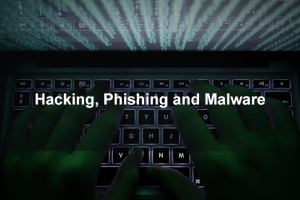Nowadays developing internet world we have to learn more about some of the most common security risks, including hacking, phishing and malware and how to protect your sites and servers. Thankfully, many of these hazards can be avoided by making yourself aware of the threats.
Hacking. Someone from another location breaks into your computer remotely to cause damage or steal information. Often this will include the hacker obtaining your personal information or turning your computer into a “zombie” to further their needs. Different hacking techniques include vulnerability scanners, password cracking, packet sniffers, rootkit, trojan horses, and key loggers.
Phishing. When a website is made to look like another website for the purpose of gathering personal information from a user. Phishing usually involves fake emails that appear to come from legitimate enterprises, such as your bank or credit union. These emails contain URLs that link to malicious web pages and will ask you to enter in private information, like passwords, bank account information, or credit card numbers. Attackers can then use the entered information to steal your (or your customers’) identity.
Malware is software designed to infiltrate or damage a computer system without the owner’s informed consent. Its only there to break stuff. There are several types of malware, including computer viruses, worm viruses, spyware, adware, scareware and crimeware. To spread Malware, perpetrators can create malicious websites of their own, exploit a vulnerability in the applications a website relies on or exploit a vulnerability on the web server or its configuration.
Malware is often download from an email attachment or from a suspicious website. However, malware can also infect servers and upload malicious code or web pages that deliver malware to the site’s visitors.
There are a few key practices that can greatly increase your protection from the majority of instances. To protect your sites and servers you should choose strong passwords that can’t be easily guess by computer programs. Additionally, keeping websites up to date with security patches is one of the most important means of protection. Companies often publish patches or security updates that are built to prevent these types of attacks.
